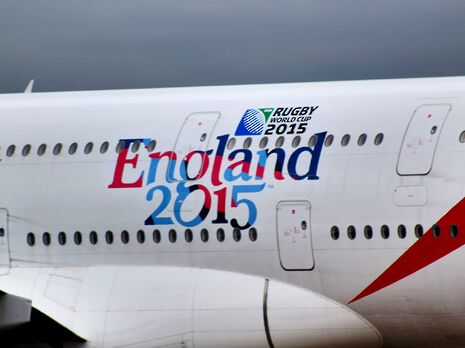Is the TMO just TMI?
Adam Woolf questions the use of the TMO at this years’ World Cup

The opening game of the Rugby World Cup - England vs Fiji - took over two hours from start to finish. Over the course of the match, six incidents were referred to the Television Match Official (TMO), and this set the tone for the rest of the tournament.
In this World Cup, any decision relating to a try that is anything short of absolutely clear-cut is referred to the TMO as a matter of course. That’s before we even factor in the crackdown on “neck-rolls” in the ruck, and other dangerous play, which sees even greater use of video technology.
The TMO can intervene in a total of four extremely broad scenarios, giving it the power to advise the referees on virtually any decision involving points being scored, or yellow and red cards being issued. There is also the problem of any of the match officials being able to refer an incident to the TMO, including the TMO themselves. As such, the TMO, the two assistants, or the referee may stop play at any time to review an incident.
When it was first introduced, the TMO could only adjudicate on what took place in the in-goal area. Was the player in touch? Was the grounding good? More importantly, they could only intervene when asked specifically by the referee. They could not speak to the referee at all before being asked a question. This was a better system because it avoided referees being undermined and having their decisions reversed. This leads to confusion after tries are awarded, because any such intervention by the TMO must take place before the conversion is kicked. Owen Farrell recently commented that he would rush a conversion to prevent the possibility of the try being reviewed, if he thought it was suspect. It seems ridiculous that a try can be given or not given depending on the speed of the conversion. Once a referee makes a decision, it should stand, be it right or wrong.
Referrals for dangerous play can take place at any time in the same play as the offence, but some plays can last 2 to 3 minutes. This leads to the farcical scenario of taking play all the way back for a penalty occurring an age ago – the time spent playing in the interim being effectively wasted.
Top international referees are an elite group, both physically and mentally. They have many years of experience, and are rewarded handsomely for the work they do. It is the crux of their job to make tough decisions under huge pressure, and to get them right 95 per cent of the time. Decisions where there is genuine doubt from the referee or their assistants should of course be checked, but far too many calls are made easily and correctly first time and then sent upstairs to be formally rubber-stamped.
One way to cut down on lengthy stoppages would be to have the referee make an instinctive decision/ first, before asking the TMO to find evidence to the contrary. If they can’t do so in a timely fashion (say one minute), the referee’s ‘instinctive’ decision stands. No more looking at every angle twice. Dangerous play should only be looked at within 20-30 seconds of the offence taking place. Failing that, it should be left until after the match.
At some point, a compromise has to be made between getting some decisions wrong and slowing the game down too much. Pick your lesser evil. Nobody wants to see grave injustices at any level of rugby, or sport in general, least of all at an international level, when so much more than mere pride is at stake. But a line must be drawn. The pedantry has gone too far, and it just might ruin this World Cup.
 News / Uni Scout and Guide Club affirms trans inclusion 12 December 2025
News / Uni Scout and Guide Club affirms trans inclusion 12 December 2025 News / Pembroke to convert listed office building into accom9 December 2025
News / Pembroke to convert listed office building into accom9 December 2025 Features / Searching for community in queer Cambridge10 December 2025
Features / Searching for community in queer Cambridge10 December 2025 News / Uni redundancy consultation ‘falls short of legal duties’, unions say6 December 2025
News / Uni redundancy consultation ‘falls short of legal duties’, unions say6 December 2025 News / Gov declares £31m bus investment for Cambridge8 December 2025
News / Gov declares £31m bus investment for Cambridge8 December 2025








